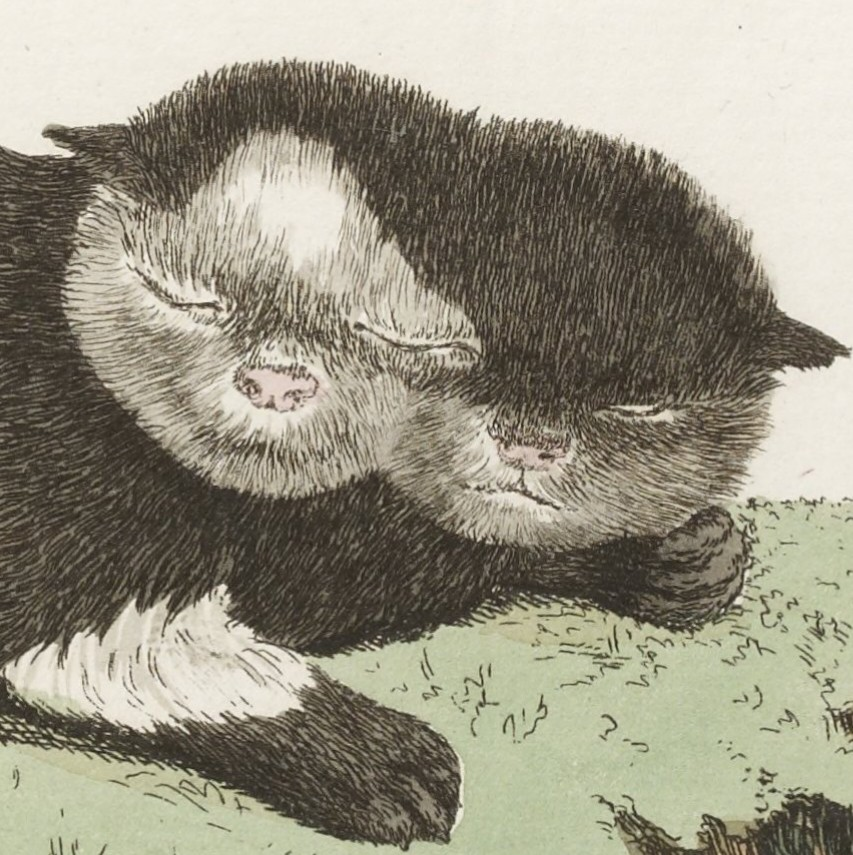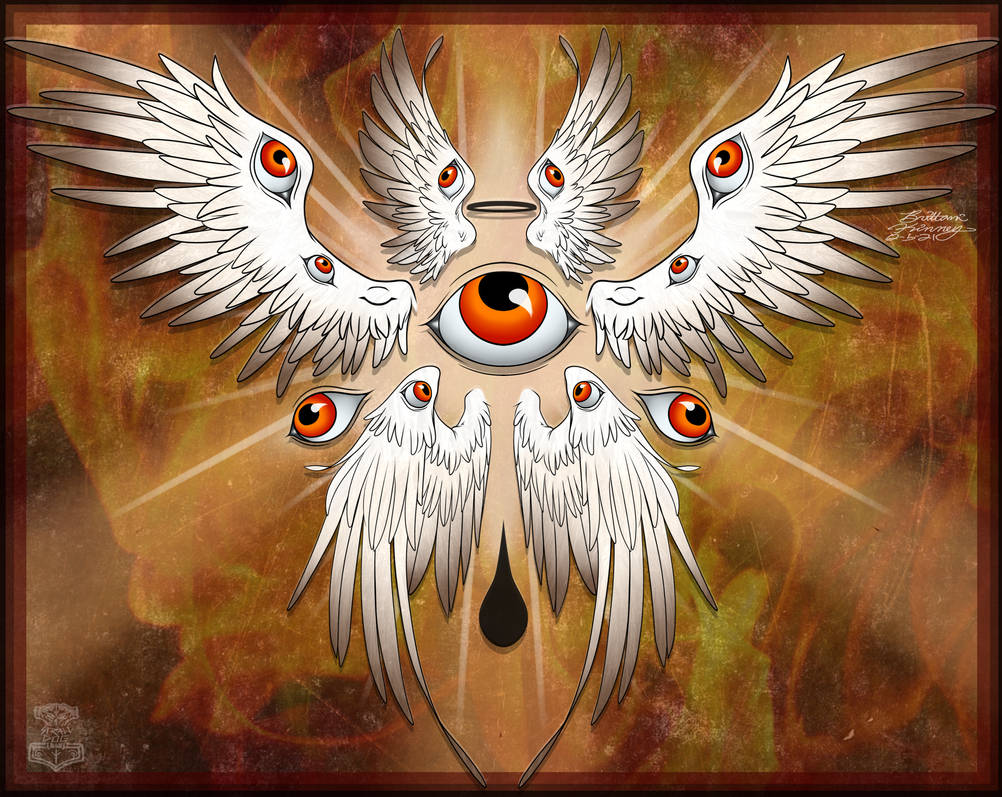When I’m unhappy, I feel like I’m doing life wrong. I’d rather be happy. But is happiness the point of life, or is there more to it? If I pursue happiness, mine first then for those around me, is that selfish? But if there’s a bigger purpose, then what about people with Alzheimer’s or dementia who can’t recall recent experiences or make plans?
As a hedonist my answer is yes. Life doesn’t have an actual point. It wasn’t “made” on purpose but because it got the chance. What you make of it is your decision but since we have a brain that rewards us and a nociception that punishes us depending on how we use our life I suggest you choose your own purpose. Mine is to be happy. Even when I’m altruistic I’m secretly egoistic because I feel better when my environment feels good too.
The only objective purpose in life is to spread your genes. You share that same purpose with every other living thing.
Other than that, it’s up to you. My purpose in life is to keep my girlfriend happy and destroy as many jobs as I can. My career in industrial automation is the key to both.
If society is an organism, you’re a somatic cell rather than a germ cell. You’re an important part of multicellular life!
It’s fun! And it pays well. Get your engineering or comp sci degree and give me a call.
The only objective purpose in life is to spread your genes. You share that same purpose with every other living thing.
That’s not my purpose; it’s my genes’ purpose.
(Similarly, any one of my somatic cells could “decide” to “pursue the goal” of spreading its own genes instead of cooperating with the other tissues and organs around it. We call that “cancer”.)
The only objective purpose in life is to spread your genes.
Not even that. It’s not like you’ve failed at life if you don’t have kids. You just haven’t spread your genetic information. Saying that its your purpose to spread them implies it’s the genes purpose to be spread. Genes simply are, they don’t have a purpose just like you don’t; evolution has just given organisms behaviors and mechanisms that make it very likely that they will be regardless of that lack of purpose.
That’s a valid way of looking at it, too.
Realistically, the concept of “purpose” doesn’t exist in the universe outside of our imagination any more than justice, beauty, or morality. Things just are what they are and follow the laws of physics.
If we’re making it all up as we go along, there aren’t any wrong answers. I claim the purpose of living things is to reproduce, but it’s true that living things reproduce because that’s what living things do (otherwise we’d have run out of them by now). Kind of a chicken/egg thing there.
There is no inherent purpose.
This is quite the existential question! Of course, there’s really no “right” or “wrong” answer, and there are so many different ideas on what the meaning of life is.
My opinion? There isn’t one. The fact we exist at all is a wildly random event, and the fact we are conscious of it even more so. Life is meaningless, so we create our own meaning. For me, the meaning of life is to strive for happiness (not BE happy, we can’t be happy 100% of the time), bring happiness to those around me, and leave the world better than I came into it. I don’t give a shit about legacy, since I won’t be around to enjoy it. The only legacy I care about is that I made life better for the people I love.
Treat others with kindness, be mindful of the world you live in, and do more of what makes you happy.
I don’t disagree, but I’d like to explore a little further. If you were the last person on earth, I’d everyone else died of old age and you are the last, would you still want to leave the earth better than you found it? Would you take comfort in or be indifferent to the happiness you brought to the people you love? Are your ideas about good and better based on the experiences of other people, or do they exist objectively?
I’d everyone else died of old age and you are the last, would you still want to leave the earth better than you found it?Yes. Humans are not the only thing existing on this planet, and I find it rather arrogant to treat it this way. If I’m alone staring down the heat death of our universe? Well it doesn’t quite matter anymore.
Would you take comfort in or be indifferent to the happiness you broughtAbsolutely. This is probably more nurture vs nature though. I’m very much an atheist but was raised in a strong Christian household. I’ve shunned the religious aspect, but “Love your neighbor as yourself” is pretty much ingrained in my DNA at this point. I find happiness in bringing it to others.
As for ideas of good and better, of course they are my own opinions and based on experiences of others. There is no objective “good” and “better”, because there is no objectively true meaning to life. For me personally, doing what makes me happy would include eating good food, drinking good whiskey and listening to punk rock. Those are not objectively good, but they are good to me. I will share them with likeminded people, and I will find other ways to better my neighbors’ lives.
Maybe flip it around? The point of unhappiness (or dissatisfaction) is to get the organism to change up what it’s doing; to locate new goals and pursue them. That can mean engaging with others in different ways than you did before.
If you’re satisfied, you mostly stick with what you’re doing already. (Which might include seeking novelty as well.) If you’re unsatisfied, you may be ready to ditch your current situation for a new one as soon as one comes up.
Dementia in elders is really freakin’ sad. But there’s a lot of difference in people’s experience of it. I happen to know two people in their 70s suffering dementia, who have very different levels of unhappiness. (They also live in rather different situations, although both are in relatively rural settings. Both live with a spouse and with supportive neighbors.)
One is largely satisfied and comfortable; the other is often pissed off and frustrated. This seems to have a lot to do with what their attitudes and social interactions were like before the dementia set in.
Thank you for your comments about dementia. It scares me, but I was wondering if happiness is worthwhile, even if the person that I spark happiness in won’t ever remember it. I think of both elderly people and small children, because my kids no longer remember some of our early vacations, which are some of my happiest memories. And I conclude that making people happy is valuable in itself and never wasted, even if they will forget. Maybe because that’s how I conceive of my own personality or being: I make people feel good and that makes me who I am. But maybe that says more about me or my society than about life in general.
Okay, this is an interesting idea. I said purpose, but you said meaning. Aren’t those the same? Imagine I’m pursuing something pointless, like hedonistic pleasure. Why isn’t that meaningful? How can I determine if my actions are meaningful?
Determine is an ambiguous word, here, so I’m going to break it into two parts:
-
You might discover that your actions are meaningful to others. Hedonic pleasure probably won’t be, but everyone is into something.
-
You decide if something is meaningful to yourself.
Something doesn’t have to have a purpose to b meaningful; and something doesn’t have to be meaningful to have a purpose, or at least, not meaningful outside of that purpose. I can appreciate the buffing leaves on a tree in spring without needing those specific leaves o that tree for anything. I have several wooden spoons that serve me well in the kitchen but if they disappeared tomorrow I wouldn’t notice or care.
To be clear: Meaning is internal, but purpose is some sort of external function, utility, or goal.
-
I’ve always felt that life’s purpose should be pursuit of knowledge and self expression in roughly equal proportions. So 50% science, 50% art. That’s just what feels right in my brain, I guess.
I think most brains are just going to have their own idea of what life’s purpose should be and most of them will be more or less fine. A majority will have said purposes stifled by the limitations of society and biology, though
I like this answer. I still wonder if there’s more. Is knowledge better if it serves a purpose, like improving your art? Should art serve a purpose? Is beautiful enough, or should it be useful?
Is knowledge better if it serves a purpose, like improving your art?
In my opinion knowledge that serves a purpose (improved art, medical science, applied engineering, take your pick) is better than “trivial” knowledge, but even trivia has purpose (it can entertain and inspire) and sometimes converts from trivia to “useful” knowledge when combined with new science and tech. A good example is pure math, here’s a stackechange thread about mathematics areas that were found to have applications well after their discovery, by mostly mathematicians doing math for the sake of math.
Should art serve a purpose? Is beautiful enough, or should it be useful?
If you mean its physical form has a function other than to be perceived by humans for entertainment and inspiration, then sure, why not? But maybe not always. :) Also of note, not all art is necessarily beautiful. I would say a fair bit of “useful” or otherwise multipurpose art is quite ugly. Shock films, muckraking journalism, and hostile architecture come to mind as examples.
I’m a big fan of positive nihilism. Everything has occurred by random chance and there are no inherent truths or any purpose to anything. Nothing we do actually matters in the grand scheme of the universe. So, since nothing matters, I am free to exhert my free will and give value to what I choose.
I want to live a life where my perspective is, on the whole, a positive, happy one, and I want to create as many opportunities for others to do the same as possible. I do not want to tolerate those that use their freedom to steal the freedom of others or who seek pleasure at the pain and cost of others. I want to utilize my freedom to seek pleasure and joy and bring pleasure and joy to others without causing pain and suffer.
Nothing matters, so choose the life you want. There is no right or wrong way to live.
This sounds a lot like absurdism, especially the “nothing matters so I can do whatever I want”.
There’s one massive quality that makes positive Nihilism different from Absurdism. Absurdism states that trying to create meaning in a chaotic universe puts you at odds with it. Therefore, doing so creates unhappiness. Optimistic Nihilism, as the common thought I was trying to convey but incorrectly labelled is called, believes that without inherent meaning in our chaotic universe, we are free to create whatever meaning we desire.
Both believe the universe is inherently chaotic and meaingless. Only one believes that you can successfully create meaning.
Hmm, I’ve never heard the part where going against the universe creates unhappiness. Maybe I should read a bit more in depth. Thanks for the explanation.
This seems eminently reasonable. But why do you choose joy over suffering? Clearly you value one over the other and expect others to feel the same. If we all agree, doesn’t that make it right (for us)? And why do we plant trees that we’ll never get to sit under?
I don’t think there’s a purpose, really; to put purpose or duty to a sense of joy is to try to quantify it, to package it - and since everyone is different, and perceives things differently, then that means joy takes just as many different forms and can’t be packaged so neatly.
I think life in every sense is more chaotic than that, and that randomization of cells or events or emotions can’t and shouldn’t be whittled down into some universal experience or explanation. Making something your “purpose” immediately brings with it a certain expectation - it almost makes it sound as if you’re trying to be happy out of duty, which seems…weird.
I don’t think you’re failing at life if you’re unhappy. Everyone has low or weak points, and that inevitably changes in some form of another. That’s one of the universals, a product of events and living situations and hormonal/genetic makeup. Sometimes people can have all their needs cater to and still your brain will fuck you over.
So I’d ask yourself why you’re looking for a purpose in the first place. It makes sense if there’s some goal you want to attain; and if that goal is happiness, it’d be best to think about some actions you could do to obtain it. If you’re not looking for that goal and just asking why people seem to pursue happiness, then the best answer I can give you is: why not? Suffering feels bad and I don’t wanna feel bad.
I don’t expect others to feel the same. I have chosen to give value to one over the other simply because I would prefer a world where we collaborate towards collective happiness, joy, and pleasure. I suspect many others believe that working towards the prosperity of the collective will hamper their ability to find personal prosperity, and I simply think they are wrong. I think such a case boils down to chasing momentary pleasure over long-lasting pleasure, because that is my experience with such people.
In a way I believe in tangible karma; those who work to bring pleasure to those around them are occasionally taken advantage of, but more often are given pleasure in turn. Likewise, I’ve never met a self-centered asshole who isn’t consistantly overcome with unhappiness, while almost universally blaming that unhappiness on external factors.
I plant trees I will never get to sit under because I appreciate those before me who did the same. Again, that is no more than what I have chosen to give value to.
But this is a bit of a digression. The reality is these are the wisdoms of my experiences, and I wager there’s no universal truths in them. Nothing matters, so I look to these experiences and see that a co-operative, collaborative life looks more pleasurable. So I strive towards one, encourage others to do the same, and refuse to tolerate those that would actively work to steal happiness from others. Yes, I am aware that the inverse is equally true - why is it wrong to steal happiness from others if nothing matters - but this perspective is simply not the one I have chosen to place value on. Arbitrary? Sure. It still represents the best way I’ve found to enjoy life.
Wow you have just summed up my outlook on life perfectly, thank you
The purpose of life is to not die.
Technically the truth.
Not all life can have meaning or greater purpose, that happens in fiction mostly anyway.
Find things that make you comfortable, content and feel safe, and fill your life with them. It’s ok to just be.
But isn’t our life really just the story we tell ourselves about ourselves? I guess I’m trying to create a narrative arc, and your comment says to me: enjoy the exposition and character development; it’s enough.
Yeah but just like lives, not all stories are good. When you can’t change fundamental building blocks of your own story to create a pleasing narrative for yourself, all you can really do is exist in what there is. Most people exist like this.
Fighting your objective reality for an unobtainable greater meaning, will cause mental illness if you keep doing it. Come to terms with the real you as opposed to the ideal you, and make what you have for your life as nice for yourself as you can, while you can.
Save your desires for manifest destiny for your OC’s and write some stories about them or illustrate them or something.
That’s a pretty high bar. In fact exaggerated focus on “am I happy” can sort of fuck you up. Focusing on what you appreciate is supposed to be better and make you happier. The cliché is “the meaning of life is to give life meaning” which is disgustingly Hallmark, but still has a fair point. Just do whatever - a good idea is to not get too existential if you can avoid it.
Toxic positivity is a real thing.
Part of the inspiration for this post was: I am a grown up and I can do whatever I want with the next hour. What will I do? What does that say about me? What should I do with my life? What kind of person does that make me? Am I shallow for just wanting to experience as many new things as possible? I don’t think so, I think that’s just my genetics expression themselves. But that raises questions about free will, and I’m not willing to ponder that this morning. I’d rather spend the next hour doing something fun.
If you’re not already, go do something fun!
I’m going out to lunch with friends. Tomorrow, I’ll go springboard diving. Not because it matters, just because I enjoy it.
There is no objective purpose to life. Some funny long molecules mashed into eachother a few billion years ago. Scientifically there is no evidence of cosmic purpose to anything.
It’s your life. You get to decide what to do with it.
There are some goals which are generally considered to be nobel. Make the world a better place, for example… but that’s a far cry from an absolute definition of purpose.
I’d refrain from thinking about a purpose and instead think of your values. Then, if you want, establish goals that align with your values.
Being happy could be a goal for you , but that’s not the same as a purpose.
Del: sorry, I had a brain fart
I urge you to look into Buddhism. Not as a religion to do ritualistic shit but as a philosophy, as Buddha intended. The only purpose of Buddhism is to address what you’re feeling right now.
Also check this video out. https://youtu.be/pBnH99Mqop4?si=rFGRX_sd9bibUF3f
You might be surprised to hear that I’ve explored Buddhism somewhat, and I think it has helped. I went from worrying that I’m not good enough and I’m not achieving enough, to just accepting who and what I am. I feel that’s been positive. The video you linked sums it up nicely. I enjoy the book Who ordered this truckload of dung? : inspiring stories for welcoming life’s difficulties by Ajahn Brahm (https://archive.org/details/whoorderedthistr0000ajah).
Here is an alternative Piped link(s):
https://piped.video/pBnH99Mqop4?si=rFGRX_sd9bibUF3f
Piped is a privacy-respecting open-source alternative frontend to YouTube.
I’m open-source; check me out at GitHub.











